Sober living homes occupy a regulatory gray zone in Florida's addiction recovery landscape. These facilities promise safe, supportive housing for individuals in early recovery, but they face minimal oversight, inconsistent licensing requirements, and almost no enforcement when they fail.
When these facilities accept vulnerable residents who need structure, accountability, medication management support, and protection from predatory housemates, but instead deliver overcrowded rooms, stolen medications, sexual assaults, financial exploitation, or environments so chaotic that relapse becomes inevitable, residents suffer harm that destroys recovery and sometimes ends lives.
Spetsas Buist represents residents and families harmed by sober home negligence, navigating Florida's fragmented regulatory system to identify liable parties, preserve evidence of systemic failures, and pursue compensation when facilities prioritized profit over the safety of people fighting for their lives in early recovery. Call (321) LAWSUIT for a free, confidential consultation with a Winter Garden sober home abuse lawyer.
Schedule Your Free Consultation
Table of contents
- Facts About Sober Home Abuse and Negligence in Winter Garden
- What Sets Our Winter Garden Sober Home Abuse Lawyer Apart
- What Constitutes Sober Home Abuse and Negligence in Florida
- Who Is Responsible for Winter Garden Sober Home Neglect?
- What Compensation is Available in Winter Garden Sober Home Abuse Claims?
- Florida Deadlines for Sober Home Abuse and Negligence Claims
- Reporting Sober Home Abuse in Winter Garden, Florida
- FAQ for Winter Garden Sober Home Abuse and Negligence Claims
- Hold Predatory Sober Home Operators Accountable
Facts About Sober Home Abuse and Negligence in Winter Garden
- Florida law distinguishes "recovery residences" (purely housing) from licensed treatment programs, but many sober homes blur these lines
- Certification through the Florida Association of Recovery Residences (FARR) is voluntary, not mandatory; uncertified homes face no external oversight beyond basic building codes and zoning laws
- Sober home abuse includes financial exploitation, theft of medications or belongings, sexual assault by staff or other residents, inadequate supervision allowing drug use on premises, or eviction without notice, leaving residents vulnerable during early recovery
- Liability may extend to property owners who lease to sober home operators, referral sources who send residents to known dangerous facilities, and house managers who operate multiple homes under different names to evade accountability
- Evidence preservation is critical and immediate: residents cycle through quickly, house managers close facilities and reopen under new names, and witnesses scatter
What Sets Our Winter Garden Sober Home Abuse Lawyer Apart
Sober home cases require understanding addiction recovery, the informal economy of sober living, Florida's fragmented regulatory landscape, and the stigma that makes residents reluctant to come forward even when harmed.
Spetsas Buist represents residents and families, recognizing that these cases are as much about exposing predatory business practices as they are about compensating individual victims.
Investigating the Shadow Economy of Sober Living

Many sober homes operate as cash businesses that leave minimal paper trails. Residents pay weekly rent in cash, house managers pocket the money, and when something goes wrong, there's "no evidence" of the arrangement.
We investigate beyond the missing paperwork by interviewing former residents who confirm the facility's existence and conditions, reviewing property records to identify owners, examining social media and online advertising to prove the facility advertised itself as providing recovery support, and tracing financial records through subpoenas to banks and payment processors.
Our sober home negligence lawyer also identifies patterns, like operators who run multiple homes under different names, property owners who lease to serial sober home operators with complaint histories, and referral networks where treatment centers earn kickbacks for sending residents to dangerous facilities.
Giving a Voice to Residents Others Won't Believe
Residents of sober homes face credibility challenges when they report abuse. Defense attorneys may try to portray them as unreliable, manipulative, or responsible for their own circumstances.
Spetsas Buist builds cases that don't depend on single-witness credibility. We can present testimony from former residents describing the same conditions, photographic evidence of overcrowding or deplorable conditions, 911 call records, and law enforcement reports documenting incidents.
We also help sober home residents understand their legal rights:
- Landlord-tenant laws apply even in informal arrangements
- Discrimination based on disability (including addiction and psychiatric conditions) is illegal
- Residents cannot waive basic rights to safe premises through pre-signed agreements
- Complaining about dangerous conditions is a protected activity that cannot legally trigger retaliation
Connecting Systemic Reform with Individual Justice
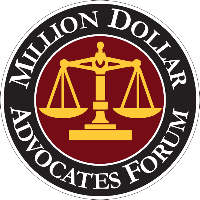
Sober home cases may not end with single-plaintiff settlements. When we uncover dangerous operators, we coordinate with regulatory agencies, law enforcement, and other attorneys representing multiple victims.
We provide evidence to DCF for licensure actions, to AHCA when facilities should have been licensed but weren't, to local zoning authorities when facilities violate occupancy codes, and to criminal prosecutors when theft, assault, or fraud occurred.
This multi-front accountability serves both individual clients and the broader recovery community. Our Winter Garden lawyer views these cases as consumer protection work as much as personal injury litigation.
Understanding the Recovery Community's Trust Issues
People in early recovery have often been failed by systems before. We earn trust through transparency. Our legal team explains realistic outcomes, does not make guarantees, acknowledges the challenges these cases present, and stays in communication throughout the process.
We also understand when litigation may not serve the client's recovery: pushing too hard too fast can trigger relapse, dredging up trauma through depositions may destabilize mental health, and the stress of litigation sometimes outweighs potential compensation.
We adapt timelines to individual needs, coordinate with treating providers, and sometimes advise clients to focus on recovery before pursuing legal claims if that's what serves their long-term well-being.
What Constitutes Sober Home Abuse and Negligence in Florida
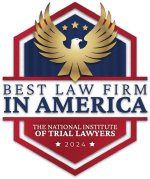
Sober living homes provide housing for people in recovery from substance use disorders. This is a critical resource for the transition period between intensive treatment and independent living. These facilities range from well-run, certified recovery residences with trained staff and clear accountability structures, to predatory operations creating environments where drug use, violence, and exploitation are rampant.
Abuse and negligence in Winter Garden sober homes can look like:
Physical Abuse and Assault
Physical abuse includes staff or other residents hitting, restraining, or using force against vulnerable residents. Unlike licensed treatment facilities, sober homes typically lack trained staff, and house managers may be peers in recovery with no formal training in de-escalation or crisis intervention.
Sexual assault occurs when house managers or other residents exploit vulnerable residents. Facilities that fail to conduct background checks, allow unsupervised opposite-gender access to rooms or bathrooms, or ignore reports of predatory behavior enable sexual abuse.
Inadequate Supervision and Drug Use on Premises
Sober living homes exist to provide drug- and alcohol-free environments. Facilities that fail to enforce house rules, don't respond when residents relapse on premises, or lack overnight supervision create foreseeable risks.
When residents use drugs on premises and overdose, facilities face liability if they failed to provide naloxone, delayed calling 911, or ignored obvious signs of intoxication. When drug use goes unchecked and residents relapse after exposure to using housemates, facilities face negligence claims for failing to deliver the supervision they promised.
Financial Exploitation and Theft
Financial exploitation includes house managers stealing residents' benefits, overcharging for housing, charging fees for services never provided, requiring residents to work without pay in facility-owned businesses, or pressuring residents to change beneficiaries on life insurance policies.
Theft by staff or other residents can be rampant in poorly supervised homes. Facilities that fail to provide secure storage for valuables, allow unrestricted room access, or ignore theft reports enable ongoing victimization.
Medication Management Failures
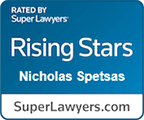
Many residents take prescribed medications for co-occurring mental health conditions, chronic pain, or medication-assisted treatment for opioid use disorder. Sober homes that hold themselves out as supporting residents in recovery must accommodate prescribed medications and cannot discriminate against residents taking MAT under federal disability laws.
Facilities create liability when they confiscate medications (including MAT), shame residents for taking psychiatric medications, fail to provide secure medication storage, or create environments where residents feel pressured to stop medications to "prove" they're "really sober."
Unsafe and Unsanitary Conditions
Physical premises failures include overcrowding, a lack of working smoke detectors or carbon monoxide alarms, negligent security that allows residents to come and go overnight, infestations, sewage backups, mold, inadequate heat or air conditioning, and insufficient bathroom or kitchen facilities.
These conditions violate basic habitability standards and FARR standards for certified recovery residences. Residents who develop health problems from mold exposure, are injured in fires due to missing smoke detectors, or suffer from infectious diseases spread through unsanitary facilities have premises liability claims.
Wrongful Eviction and Abandonment
Many sober home residents are one eviction away from homelessness. They've exhausted family support and have no financial resources. House managers who evict residents without notice, abandon residents during emergencies, or lock residents out while they're at work cause severe harm.
Residents evicted without notice during early recovery face homelessness, immediate relapse risk, loss of employment, and inability to access ongoing treatment. Facilities that accept residents knowing their vulnerability and then abandon them without warning face negligence claims for foreseeable harm.
Who Is Responsible for Winter Garden Sober Home Neglect?
Sober home cases require creative liability analysis because many facilities operate informally, use cash payments to avoid paper trails, and structure operations to insulate owners from responsibility.
| Potentially Liable Party | Basis for Liability | Key Failures |
| Sober Home Operator/Owner | Direct control over policies, hiring, supervision, and premises maintenance | Accepting more residents than safe capacity, failing to conduct background checks, ignoring complaints, maintaining unsafe conditions |
| House Manager | Day-to-day supervision, enforcing house rules, responding to incidents | Allowing drug use, committing assault or theft, ignoring resident complaints, failing to call 911 during overdoses |
| Property Owner/Landlord | Providing premises to operators known to run dangerous facilities | Ignoring code violations, failing to evict operators after repeated complaints, profiting from overcrowded conditions |
| Management Company | Operating multiple homes under corporate structure | Systemwide policies that prioritize profit over safety, failing to train or supervise house managers, ignoring patterns of complaints |
| Referral Sources | Treatment centers, probation officers, or agencies that place residents | Referring to known dangerous facilities, receiving kickbacks for referrals, failing to monitor placement outcomes |
| Third-Party Service Providers | Drug testing companies, therapists, medical providers contracting with homes | Falsifying drug test results, providing inadequate medical care, enabling exploitation schemes |
What Compensation is Available in Winter Garden Sober Home Abuse Claims?
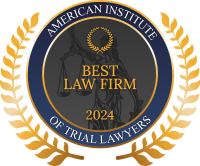
In an abuse and negligence case, sober home residents or their families may seek compensation for their financial losses or suffering that was caused by the responsible party. The amount of compensation will depend on the actual harm suffered and what party or parties are liable.
Broadly speaking, damages fall into several categories: economic, non-economic, punitive, and wrongful death.
Economic Damages
Economic damages are the tangible losses caused by the abuse or negligence, examples include:
- Medical expenses for treating injuries from assaults, infections from unsanitary conditions, or mental health crises triggered by facility negligence
- Cost of alternative safe housing after wrongful eviction or fleeing dangerous conditions
- Lost employment and wages when facility chaos disrupted stability needed to maintain jobs
- Stolen property value (medications, electronics, cash, IDs) and costs to replace
Non-Economic Damages
These are your intangible losses, while more difficult to quantify, recovering compensation for this harm is just as important. Examples include:
- Pain and suffering from physical injuries, sexual assault, or emotional trauma
- Emotional distress from living in unsafe conditions, betrayal by facilities trusted to support recovery, or fear of retaliation for complaining
- Loss of sobriety and need for additional treatment when facility negligence triggered relapse
Punitive Damages
Florida Statute § 768.72 permits punitive damages in limited situations when operators acted with willful disregard for resident safety. Situations where punitive damages could be appropriate include ignoring known dangers, retaliating against complainers, or operating solely to extract money from vulnerable people.
Unlike compensatory damages, these types of damages are intended to punish the wrongdoer for their bad behavior and deter similar future behavior.
Wrongful Death
Damages under § 768.19 when residents die from overdoses on premises, suicide after financial exploitation and eviction, or assaults that facilities failed to prevent include funeral expenses, lost support to surviving family members, and mental pain and suffering for those who lost loved ones to preventable facility failures.
A wrongful death attorney may help families through this process, identifying available compensation and helping file claims against the at-fault parties.
Florida Deadlines for Sober Home Abuse and Negligence Claims
Families and residents harmed by Winter Garden sober homes need to identify the type of claim they have, and the deadlines to file these cases. Florida enforces differing statute of limitations depending on the type of claim.
| Claim Type | Deadline | Statute |
| Negligence (premises liability, inadequate supervision) | 2 years from date of injury | § 95.11(5)(a) |
| Assault/Battery | 4 years from date of incident | § 95.11(3)(n) |
| Wrongful Death | 2 years from date of death | § 95.11(5)(e) |
| Fraud/Financial Exploitation | 4 years from discovery | § 95.11(3)(j) |
It is crucial to identify the deadline to file your lawsuit. Failing to file within that timeframe could mean losing your right to recover compensation. Early consultation preserves options and allows time to locate defendants who may close facilities and disappear.
Reporting Sober Home Abuse in Winter Garden, Florida
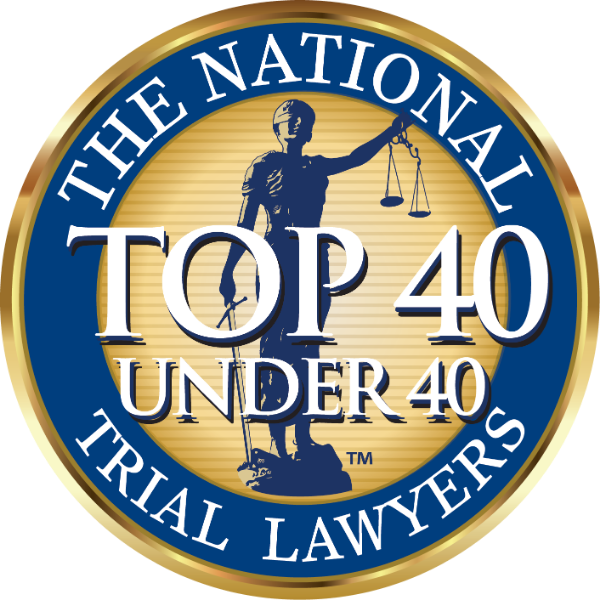
Report suspected abuse or dangerous conditions to multiple entities:
- Local law enforcement (Winter Garden Police or Orange County Sheriff) for criminal conduct (assault, theft, fraud)
- Department of Children and Families (DCF) abuse hotline at 1-800-96-ABUSE if the resident is a vulnerable adult
- AHCA at 1-888-419-3456 if the facility should be licensed but isn't, or if a licensed facility violates standards
- Local code enforcement for overcrowding, safety violations, or zoning violations
- Florida Association of Recovery Residences (FARR) if the facility claims certification but violates standards
Reporting generates documentation, triggers inspections, and sometimes results in facility closure, all of which strengthen civil claims. Spetsas Buist negligence lawyers coordinate with agencies to ensure evidence preservation supports both regulatory action and civil litigation.
FAQ for Winter Garden Sober Home Abuse and Negligence Claims
Can I Sue an Unlicensed Sober Home That Claims It Only Provides Housing?
Yes. Facilities that hold themselves out as supporting recovery, enforce house rules, conduct drug testing, or provide any services beyond basic housing create duties of care they must meet.
What if I Signed an Agreement Waiving My Right to Sue When I Moved In?
Signing a waiver does not necessarily mean you gave up your rights to take legal action. Provide your sober home abuse lawyer with a copy of any waivers to determine their enforceability and potential impact on your case.
My Loved One Relapsed After Being in the Sober Home? Does That Hurt Our Case?
Relapse doesn't eliminate facility liability if the facility's failures caused or contributed to the relapse. Your lawyer may work with addiction medicine experts who can explain how facility negligence created foreseeable relapse risks.
Will the Facility Retaliate if I File a Complaint or Lawsuit?
Retaliation for reporting abuse or filing lawsuits is illegal. Our sober home abuse lawyer documents retaliation and may pursue additional claims based on retaliatory conduct while seeking protective orders to prevent ongoing harm.
How Much Does a Winter Garden Sober Home Abuse Lawyer Cost?
Spetsas Buist represents residents and families on a contingency fee basis. We also offer free, confidential consultations and advance case expenses, which are repaid only from settlements or verdicts.
Hold Predatory Sober Home Operators Accountable
The promise of sober living in a safe, supportive environment during the vulnerable transition from treatment to independent living represents hope for people fighting to rebuild their lives in recovery. When operators betray that promise by packing vulnerable residents into overcrowded, unsupervised, chaotic facilities where theft, assault, and drug use are rampant, they cause individual harm and undermine the credibility of legitimate recovery housing.

Spetsas Buist represents residents and families harmed by sober home negligence, pursuing accountability against operators who view vulnerable people as profit centers rather than human beings deserving of dignity and safety. We expose predatory business practices, identify liable parties, and pursue compensation that addresses both immediate harm and long-term recovery needs.
Call (321) LAWSUIT for a free, confidential consultation with a Winter Garden sober home abuse and negligence lawyer. We represent residents and families throughout Orange County fighting for people whose trust was betrayed by facilities that promised recovery support and delivered exploitation instead.